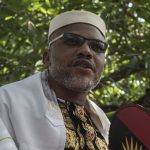Process and Industrial Development, (P&ID) has accused Nigeria’s Attorney-General, Abubakar Malami of lack of regards for the rule of law.
In a statement to DAILY POST on Friday, the company which has been in a running battle with the Nigerian government, said the AGF will, no doubt, pay occasional lip service to the concept, but his recent actions speak far louder than any words.
It said, “Over the past 6 weeks, AGF Malami has shamelessly misrepresented the true motives behind the fishing expedition it has asked the U.S. courts to endorse, through an application under a U.S. statute, 28 U.S.C. § 1782 (or ‘Section 1782’).
“In these applications, Nigeria’s chief law enforcement officer has suspiciously sidestepped the ordinary procedure for collecting criminal evidence in the United States – and, in doing so, ignored his obligation of candor before the U.S. court.
“This should not be surprising. P&ID has known that Nigeria would embark on a desperate fishing expedition to find anything it could to unduly influence the court of public opinion and muddy the waters before the English Commercial Court. The English Commercial Court will soon have the opportunity to decide whether Nigeria’s time is up to bring its challenge, so Nigeria is pulling out all the stops to manufacture the evidence it requires to claim fraud.
“As Nigeria seeks to nullify the P&ID Award on the grounds of a manufactured fraud investigation, it is important for all to know what AG Malami has done under oath before the U.S. courts ,” the group said, adding accusing the AGF of:
“Abuse of established diplomatic protocols and the mutual legal assistance treaty
“Countries have a well-established mechanism to pursue evidence for law enforcement investigations across national borders: mutual legal assistance treaties (MLAT).
“Nigeria has just such a treaty with the United States, which allows Attorney General Malami to send requests to the United States Department of Justice. The Department of Justice can then evaluate the request and, if it accords with due process and the U.S. Constitution, a federal prosecutor may seek a subpoena to gather evidence. Nigeria has circumvented this established diplomatic process, and is instead directly pursuing evidence from U.S. citizens and companies on U.S. soil. Despite now making two separate requests to the U.S.
“Courts to seek exactly the sort of evidence that it could pursue through the MLAT, Nigeria has neither explained why it could not pursue evidence through the MLAT, nor whether DOJ has in fact already rejected such a request.
Nigeria’s decision to do an end-run around establish diplomatic protocols using Section 1782 rather than asking DOJ for help has important implications. DOJ plays an essential gatekeeping role in reviewing applications for legal assistance, ensuring that foreign prosecutors aren’t engaged in a witch-hunt that tramples due process rights by carrying out domestic political vendettas with the imprimatur of U.S. courts for their political gain. Nigeria’s deviation from this system cuts out this protection entirely, leaving U.S. citizens and others vulnerable to such abuse at the hands of AG Malami and his collaborator, Ibrahim Magu at the EFCC, both well-known violators of human rights, according to the U.S. Department of State and numerous civil society organisations the world over.”
It further accused Malami of misrepresentation to the U.S. Courts, adding, “In addition to evading scrutiny by the DOJ of its sham “investigation” of P&ID, Nigeria’s Section 1782 application is itself a grossly misleading submission. Nigeria has stated that the application was necessary for “criminal investigations and judicial proceedings pending in” Nigeria, but that was not the case, at all.
“That is because the true purpose of Nigeria’s fishing expedition in the U.S. was not to obtain evidence for use in Nigeria, but rather to obtain ammunition for attacking P&ID’s arbitration award both in the English Commercial Court and in its broader publicity campaign against P&ID. Tellingly, Nigeria pretended that was not the case – telling the U.S. Court that this was “rank speculation” – but then immediately started using information it had gathered for precisely those purposes.
“In an attempt to evade paying P&ID, AG Malami – despite the immense power already at his disposal – has willfully misled these respected legal institutions and subverted established diplomatic channels to escape oversight. Unfortunately, we’ve come to expect nothing less from Nigeria’s chief law enforcement officer.
“In many ways, these revelations should not be surprising. The myriad corruption allegations levelled against AG Malami tell their own story, and these – along with the developments this week – colour his credibility as a witness before the English Commercial Courts.”




